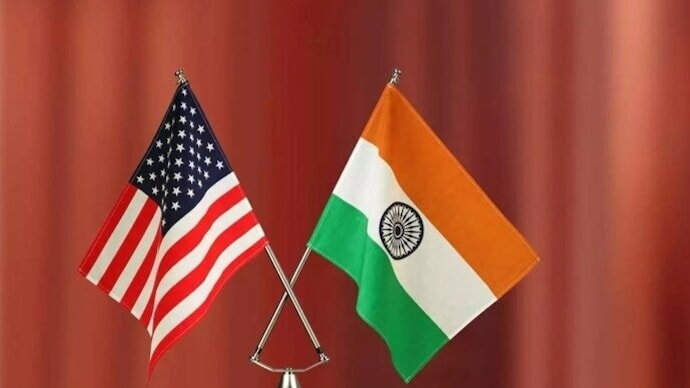US Places India on Priority Watch List Over IP Concerns
)
Introduction: A Diplomatic Flashpoint in US-India Trade Relations
The United States Trade Representative (USTR) has once again placed India on its “Priority Watch List” in the 2025 Special 301 Report, citing persistent concerns over intellectual property (IP) protection and enforcement. The move has sparked debate in both nations, as it underscores ongoing friction in an otherwise strengthening US-India strategic partnership.
The designation draws attention to areas where the U.S. believes India falls short in safeguarding the interests of American innovators and creators, particularly in the pharmaceutical, entertainment, and technology sectors.
What is the Special 301 Report?
The Special 301 Report is an annual review by the USTR that evaluates the IP laws and practices of U.S. trading partners. Countries are categorized based on their IP environments, with the “Priority Watch List” representing nations that the USTR deems as having serious inadequacies in IP protection.
India, along with countries like China and Russia, has frequently appeared on this list. Being listed doesn’t result in automatic trade sanctions but signals possible escalation in trade-related discussions.
Specific Concerns Raised Against India

The 2025 report highlights several recurring and new concerns:
1. Patent Inconsistencies in the Pharma Sector
The USTR criticizes India’s patent system, especially the interpretation of Section 3(d) of the Indian Patent Act. This clause limits the patentability of incremental innovations unless they show significant efficacy, a policy often used to reject patents on newer versions of existing drugs.
This has upset American pharmaceutical companies, who argue that such provisions discourage innovation and hurt profits. India, however, maintains that this clause is crucial to preventing evergreening and ensuring affordable access to medicines.
2. Slow Judicial Processes and Enforcement
The report also notes the sluggish judicial mechanisms in India that delay resolution of IP disputes. Copyright infringement, trademark violations, and software piracy remain rampant due to weak enforcement and a lack of deterrents.
3. Digital Piracy and Copyright Issues
USTR flags India’s handling of digital piracy, especially in the film and music sectors. Pirated content is easily accessible, and enforcement agencies reportedly lack the tools or training to crack down on offenders effectively.
4. Trade Secrets and Data Protection Gaps
India lacks a comprehensive law for the protection of trade secrets and has minimal safeguards for sensitive commercial data, according to the report. With digital economies expanding, this gap is seen as a major drawback.
India’s Response: A Sovereign Perspective

The Indian government has pushed back against the criticisms, asserting its right to tailor IP laws to suit domestic priorities, including public health, technological advancement, and affordable innovation.
India highlights its ongoing efforts to modernize its IP framework, including digitizing IP offices, launching awareness programs, and expediting patent examination processes. Officials also emphasize that India is in compliance with global IP standards under the World Trade Organization’s TRIPS agreement.
The Broader Trade Implications
Being on the Priority Watch List can affect India’s credibility as a secure destination for foreign investment, particularly in IP-intensive industries like pharmaceuticals, media, and tech.
While it doesn’t carry legal penalties, the designation adds friction to bilateral trade negotiations and could be leveraged during talks on tariff reduction, market access, and investment treaties.
India’s growing startup ecosystem and ambition to become a global tech hub could be undermined if these IP issues are not addressed satisfactorily.
Industry Reactions: Balancing Innovation and Access
Stakeholders from both countries have weighed in.
- US Pharma and Media: Industry groups such as PhRMA and MPAA have lauded the USTR’s decision, stating that India must improve enforcement and provide a fairer playing field.
- Indian NGOs and Health Advocates: On the other hand, public health activists and NGOs in India argue that stringent IP enforcement could hinder access to affordable medicines and essential goods, particularly for the poorer population.
- Tech and Startup Ecosystem: Indian tech firms are concerned about the ambiguity in IP protection but also worry that hasty reforms could disproportionately benefit foreign corporations.
Moving Forward: A Path Toward Cooperation
Despite disagreements, both India and the US acknowledge the importance of maintaining a robust and balanced IP framework. In recent years, bilateral working groups and forums have been established to bridge the gap in understanding and align on mutual interests.
Experts suggest that targeted reforms—such as setting up specialized IP courts, updating copyright laws for the digital age, and introducing trade secret legislation—could help India improve its global IP image without compromising public welfare.
Conclusion: Navigating a Complex Terrain
The USTR’s decision to place India on the Priority Watch List reflects both countries’ competing interests in a globalized economy. For India, the challenge lies in protecting its innovation ecosystem while ensuring access and affordability. For the U.S., the aim is to secure fair treatment for its industries.
As India aspires to become a $5 trillion economy and a global leader in innovation, balancing these demands through thoughtful policy and international cooperation will be key. The current friction, while concerning, also presents an opportunity for both nations to refine their partnership and advance mutual prosperity.
Visit Edge Times Homepage For More News
Read Blogs From Our Blog Website
Top 10 Movies On Jio Hotstar App

Samsung One UI 7 Update Release Date In India

Best Dog Food For Shih Tzu

Visit To Our Blog Channel To Read Interesting Blogs

Leave a Reply to kmmnbphhs Cancel reply